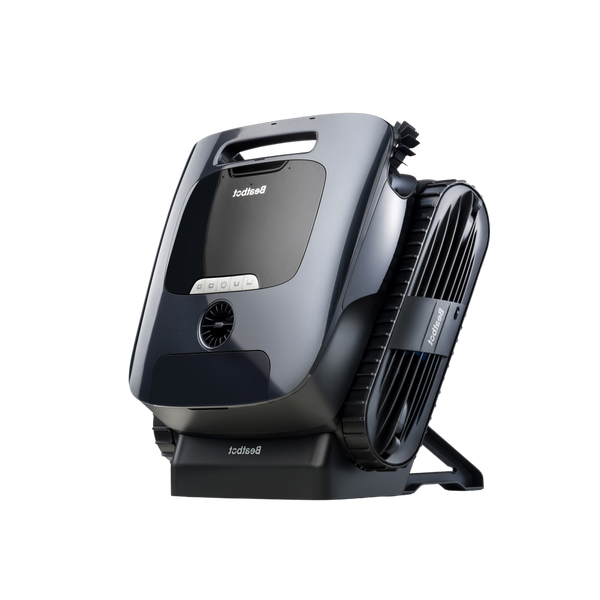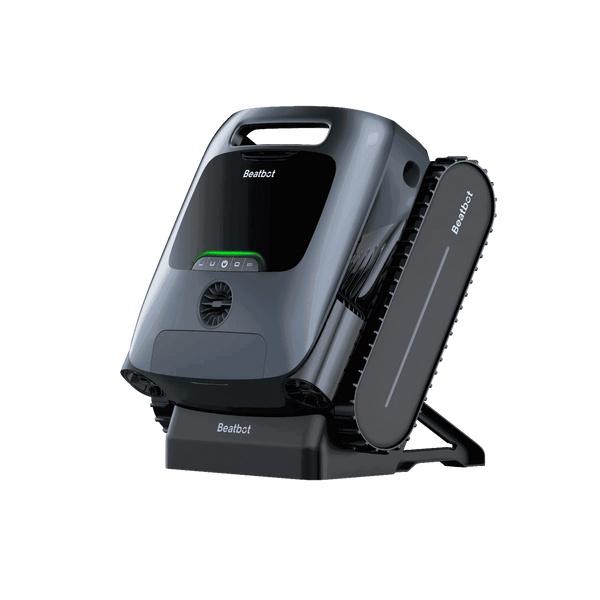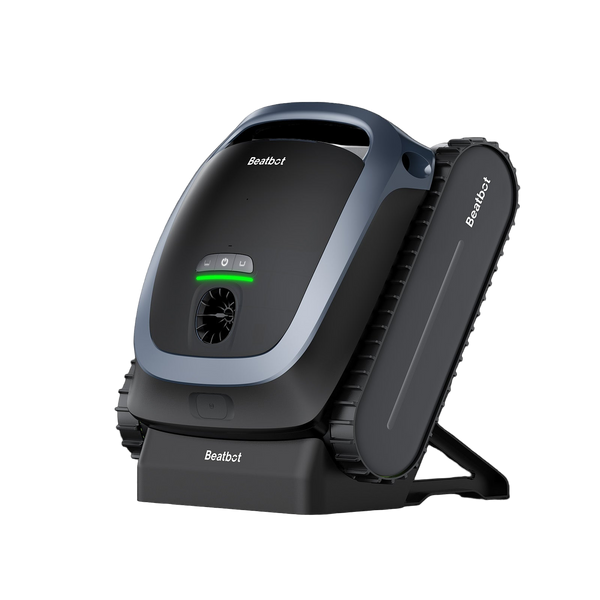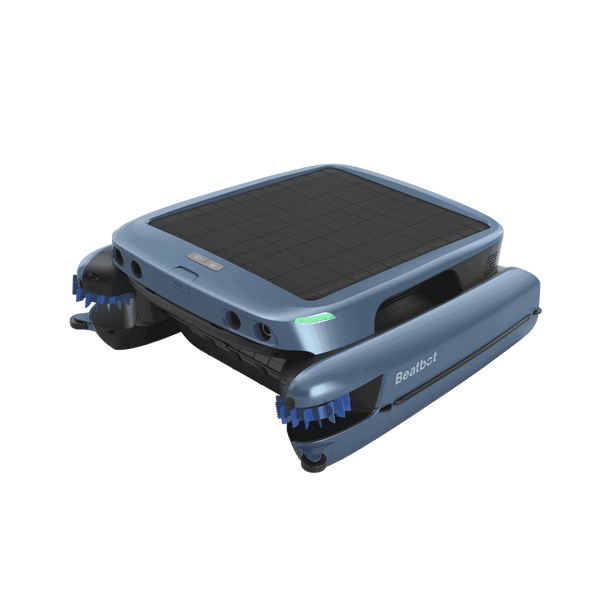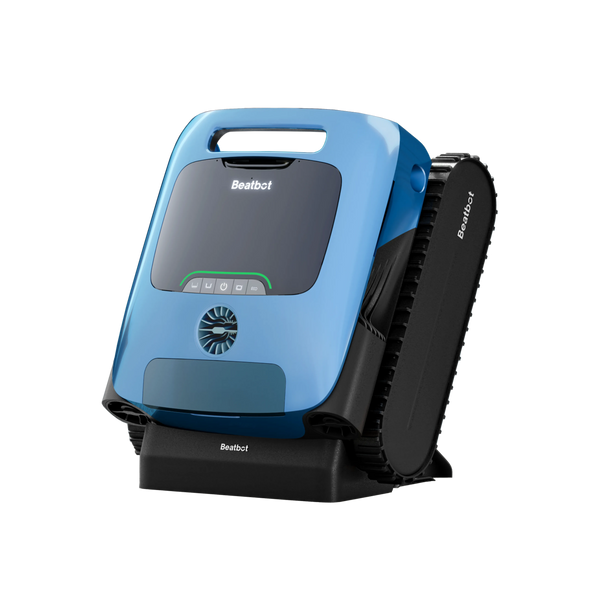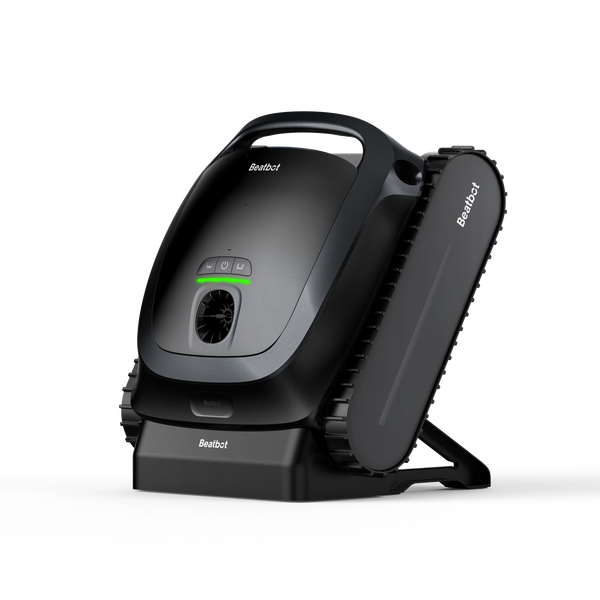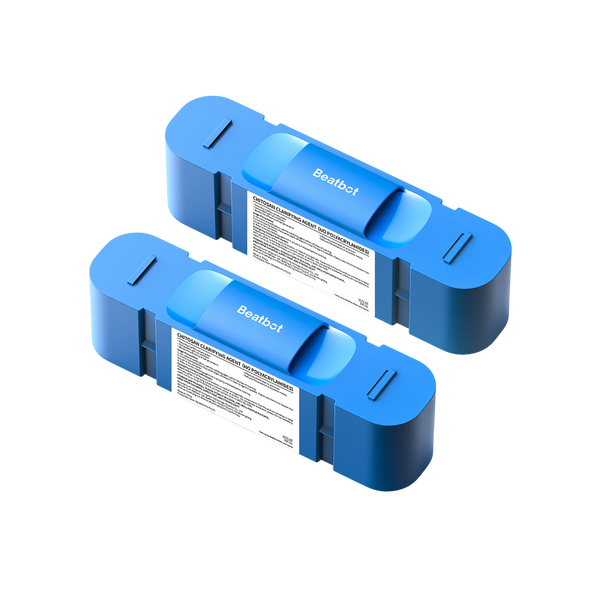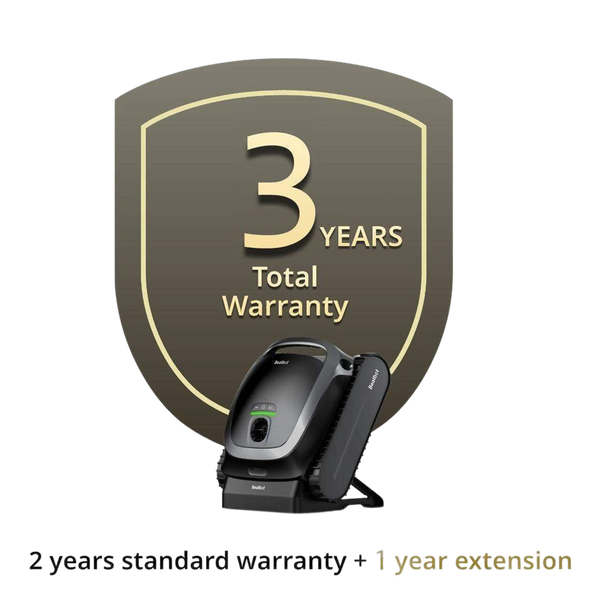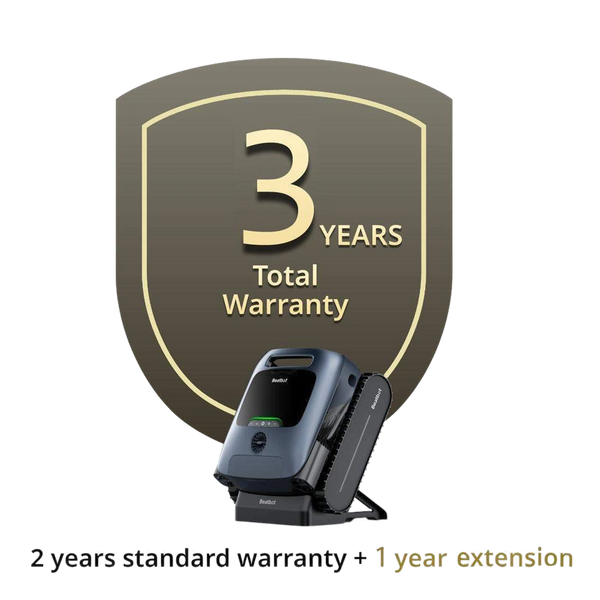Pool Vacuum VS Robotic Pool Cleaners
A pool vacuum is one of the most effective pool cleaners you can purchase. With advancements in technology, robotic pool vacuums have also started to become a staple in many households. Consequently, debates about traditional pool vacuums versus robotic pool cleaner s have emerged. This guide will take you through a comparison of the two and recommend the best pool robot available to date.
Table of contents

Features of Robotic Pool Cleaners
Robotic pool cleaners offer a variety of advanced features designed to ease your pool maintenance tasks significantly. Whether you have a small backyard oasis or a commercial-size pool, these features ensure thorough and efficient cleaning.
Independent Operation: These devices work autonomously, meaning there's no need to connect them to your pool's existing pump or filter system. This independence often results in reduced wear and tear on your pool equipment.
Efficient Cleaning Patterns: Most robotic cleaners are designed to navigate your pool with systematic cleaning patterns. They save time by efficiently covering all areas and can clean many pools in under an hour.
Advanced Control Options: Many models include remote control features, allowing you to direct the cleaner to specific spots needing attention. Additionally, programmable modes enable you to tailor the cleaning schedule according to your pool's unique needs.
Comprehensive Cleaning: Equipped with the ability to vacuum and scrub, robotic cleaners tackle every surface, from the pool floor and walls to stairs and tile lines. This ensures a sparkling clean finish without manual effort.
Investing in a robotic pool cleaner means more time enjoying your pool and less time maintaining it. These devices blend technology with convenience, making pool upkeep easier than ever.
In-Depth Analysis of Working Principles and Technological Differences
Pool Vacuum Cleaners:
- Working Principle: Pool vacuum cleaners typically rely on the powerful suction generated by a pool pump to draw dirt, debris, and other impurities from the pool bottom and surroundings into the cleaner. These cleaners come in both manual and automatic varieties, with manual cleaners requiring human pushing or pulling, while automatic cleaners may move along preset paths or randomly to clean.
- Technological Features: Most pool vacuum cleaners are relatively simple in design, primarily relying on physical suction for cleaning. Some advanced models may come with brush disks or rotating brush heads to enhance cleaning effectiveness. However, these additional features often increase the complexity and maintenance costs of the cleaners.
Robotic Pool Cleaners:
- Working Principle: Robotic pool cleaners are equipped with internal motors and intelligent systems that enable them to navigate autonomously and clean the pool. They utilize a combination of brush disks, suction, and even high-pressure water jets to thoroughly clean the pool bottom, walls, and waterline areas.
- Technological Features: Robotic pool cleaners employ advanced navigation technologies such as gyroscopes, sensors, and cameras for precise path planning. These technologies ensure that the robot can cover every corner of the pool, including hard-to-reach areas. Additionally, some high-end models feature intelligent recognition capabilities that enable them to identify pool shapes, obstacles, and automatically adjust cleaning strategies.
What Types of Pools Can Robotic Pool Cleaners Be Used On?
Robotic pool cleaners are designed to tackle a variety of pool surfaces, making them a versatile choice for pool owners. Here’s a breakdown of the different types of pools they can effectively clean:
Plaster Pools: These traditional pool surfaces are common and durable, and robotic cleaners can navigate them easily.
Gunite Pools: Known for their strength, gunite pools benefit from robotic cleaners that remove debris without damaging the surface.
Fiberglass Pools: With a smooth, non-porous surface, fiberglass pools are efficiently cleaned by robots, which can effortlessly glide over them.
Vinyl Pools: The gentle surface of vinyl pools is cleaned effectively by robotic cleaners without causing tears or abrasions.
Tile Pools: The precise movement of robotic cleaners ensures that tiles are scrubbed thoroughly, keeping grout lines clean.
Aggregate Surfaces: These textured surfaces can be more challenging, but advanced robotic cleaners can handle the crevices and unevenness.
Many robotic pool cleaners are engineered to adapt to these various surfaces, ensuring a spotless pool with minimal effort on your part. Whether your pool is made of classics like plaster or modern options like vinyl, there's a robotic cleaner designed to meet its specific needs.
Comprehensive Comparison of Cleaning Effectiveness and Efficiency
Pool Vacuum Cleaners:
- Cleaning Effectiveness: Cleaning effectiveness largely depends on the operator's skill level and the performance of the vacuum cleaner. For larger or irregularly shaped pools, it may require significant time and effort to clean thoroughly. Furthermore, due to the limitations of the vacuum cleaner's working principle, it may not effectively clean dirt attached to pool walls or the waterline.
- Efficiency: Relying on manual operation, pool vacuum cleaners tend to have lower cleaning efficiency. Especially when cleaning walls and corners, additional effort and time may be required. This increases physical exertion and cleaning costs for users.
Robotic Pool Cleaners:
- Cleaning Effectiveness: Robotic pool cleaners offer uniform and efficient cleaning. They can autonomously navigate and thoroughly cover every corner of the pool, including hard-to-reach areas. Moreover, due to the use of multiple cleaning methods, robotic pool cleaners are effective at cleaning dirt attached to pool walls or the waterline.
- Efficiency: Robotic pool cleaners are highly automated and can complete cleaning tasks autonomously. Users only need to set the cleaning time or mode, and the robot will work automatically. This significantly saves labor and time costs, improving cleaning efficiency.
What are the Advantages of Using Robotic Pool Cleaners?
Robotic pool cleaners offer a suite of benefits that make pool maintenance a breeze. Here's how they can transform your pool care routine:
Independent Operation: These advanced machines operate separately from your pool's pump and filter systems. This autonomy not only saves energy but also reduces wear and tear on your pool's main equipment.
Time-Efficient Cleaning: Equipped with intelligent programming, robotic cleaners map efficient cleaning paths, tackling most pools in under an hour. This allows you to enjoy a spotless pool without investing a lot of time.
Advanced Features: Many models come with state-of-the-art features such as remote control operation, customizable cleaning modes, and automatic shut-off functions. These technologies enhance user experience and ensure optimal cleaning.
Comprehensive Surface Cleaning: From the floor to the walls, stairs, and even the tile line, robotic pool cleaners vacuum and scrub every inch. This thorough cleaning ensures a hygienic and inviting pool environment.
Incorporating these devices into your pool maintenance routine can revolutionize the way you care for your aquatic oasis, providing sparkling results with minimal effort.
In-Depth Analysis of Automation and Convenience
Pool Vacuum Cleaners:
- Automation Level: Pool vacuum cleaners have a relatively low level of automation and primarily rely on manual operation. Users need to regularly move the cleaner to cover the entire pool. This not only increases physical exertion for users but may also affect cleaning effectiveness.
- Convenience: Operating a pool vacuum cleaner can be cumbersome for users. Especially when cleaning large pools, users may need to frequently move the cleaner and replace filters and other components. This increases the difficulty of operation and maintenance costs for users.
Robotic Pool Cleaners:
- Automation Level: Robotic pool cleaners have a high level of automation and can complete cleaning tasks autonomously. Users only need to set the cleaning time or mode, and the robot will work automatically. This greatly enhances user convenience.
- Convenience: Pool cleaner robot s significantly improve user convenience. Users do not need to operate the cleaner manually and only need to perform regular checks and maintenance on the robot. Additionally, some high-end models come with self-cleaning functions, further reducing user maintenance costs.
The Ever-Best Robotic Pool Vacuum: Beatbot AquaSense Pro:
The Beatbot AquaSense Pro revolutionizes pool cleaning with large coverage and a 5-in-1 cleaning performance, setting a new standard. Its intuitive app, OTA upgrades, and DuoSpeedFlex™ dual-brush system ensure convenience and efficiency. Advanced ultrasonic sensors and the CleverNav™ system optimize the cleaning path, guaranteeing pristine results. Experience the future of pool maintenance with AquaSense Pro.
Relative Blogs
About the author


